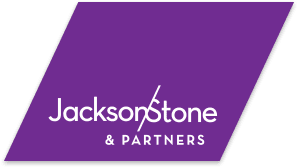3 recruitment trends we expect to see in NZ in 2018
2018 is set to be an active year for New Zealand’s recruitment sector, with a PwC report indicating over half (53 per cent) of New Zealand’s CEOs claim they will be increasing headcount in the coming year. Only 16 per cent claimed they would cut positions.
If hiring increases, so too will competition for the strongest candidates. In order to stand out to job seekers, companies must be aware of the latest recruitment trends so they can ensure they’re not falling behind their peers when it comes to creating the smoothest recruitment process possible. Here are the top recruitment trends we expect to see in 2018.
1) The candidate experience as a differentiator
What all of our recruitment trends really boil down to is improving the candidate experience. While ensuring a smooth recruitment process has always been an important goal for companies and recruiters alike, it has now become paramount in differentiating potential employers for candidates who are torn between job offers.
Technology will be key to this. Already, we are beginning to see the use of AI and chatbots to update candidates on where they are in the recruitment process, and these will become more widespread in 2018.
The average job vacancy period is now 30 days, DHi hiring reports.
Candidate experience platforms will also become the norm. Consider Johnson & Johnson, who last year created a platform named Shine (because candidates are no longer left in the dark about their application status). Not only does the platform update candidates on their application, it also helps them understand how long each process takes, as well as provides advice and blog articles to help with each step of the recruitment process.
2) Fewer interviews
The average job vacancy period is now 30 days, DHi hiring reports. We expect recruiters to make efforts to shorten this considerably, largely by reducing the number of interviews, even for the top jobs. This will help to lessen the problem of candidates taking other jobs as they wait to hear back.
3) Mobile recruiting
As more millennials start applying for the top positions, we’ll begin to see much more mobile in the recruitment process. This will have to start with optimising career sites for mobile phones – Undercover Recruiter has found that more than 70 per cent of active job seekers use their mobile phones to look for jobs, but just 20 per cent of companies have mobile-optimised career sites, and only three per cent have a mobile app.
We also expect to see texting for updating candidates to pick up in 2018. A survey by Bullhorn has found text is the second most preferred communication channel in recruitment for millennials, while for Generation Z it’s first.
These three recruitment trends will become the norm in 2018, and will be essential in helping you differentiate from competitors. For help finding the best executive talent, contact the corporate recruitment experts at JacksonStone today.



